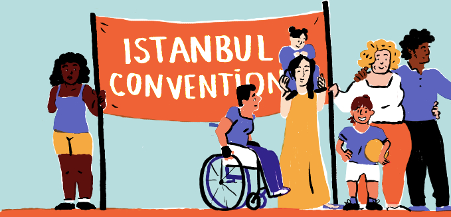Earlier this month, the UK became the 37th state to ratify the Convention on Preventing and Combating Violence against Women and Domestic Violence, which was adopted by the Council of Europe and opened for signature in 2011.
Commonly known as the ‘Istanbul Convention’, this is a landmark Treaty that is designed to combat domestic abuse and violence against women.
What are the aims of the Istanbul Convention?
The Convention has four main aims: prevention of violence, protection of victims, prosecution of perpetrators, and implementation of coordinated policies. It aims to unite states of the Council of Europe around these issues as part of a victim-centred approach to violence and domestic abuse.
How does it work in practice?
The Convention draws on the legal instruments in the European Convention on Human Rights, and its case law, to hold states to account in taking action on violence against women and domestic abuse.
Once a government has ratified the Istanbul Convention, a specialised independent body called ‘The Group of Experts on Action Against Violence against Women and Domestic Violence (GREVIO)’ monitors and evaluates the national response. The Convention also has a ‘Committee of the Parties’ which is composed of representatives of national governments who have joined the Convention. This Committee recommends the ways in which a specific country might implement suggestions and proposals to tackle domestic abuse and violence against women.
What has the response to the news been?
The UK’s ratification of the Convention is widely seen as a positive step towards the wider goal of eradicating domestic abuse and violence towards women.
However, some have criticised the UK’s decision to reserve the right not to be bound by Article 59 of the Convention which compels states to protect women whose residency status depends on that of an abusive spouse or partner. Women’s Aid and the Domestic Abuse Commissioner for England and Wales, Nicole Jacobs, among others, have spoken out on this issue.
The Convention calls on all of society to get involved in fighting gender-based violence and abuse, not just the government, so it is worth sharing this important news within your business.
Find out more:
On the Council of Europe website

